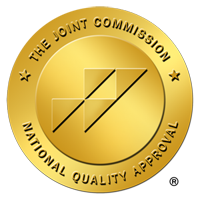Embarking on the path of addiction recovery is a journey that demands not only external support but a deep commitment to self-care. Self-care is a mindset and lifestyle that supports individuals in reclaiming their lives from addiction. By prioritizing self-care, individuals build a strong foundation for a more fulfilling, balanced, and resilient life without the need for substances.
- Understanding Self-Care in Recovery:
- Self-care in addiction recovery involves nurturing the physical, mental, and emotional aspects of well-being. This can look different for everyone, it is all about finding what works for you. Explore different activities, be curious.
- Physical Well-Being:
- Nutrition and Exercise: A balanced diet and regular exercise contribute to physical health and can alleviate some of the physical stress of recovery.
- Adequate Rest: Prioritizing sleep is crucial for the body’s healing processes and emotional well-being. We prioritize adequate sleep and rest at American Detox & Treatment Center.
- Mindfulness and Mental Wellness:
- Meditation and Mindfulness Practices: Techniques that promote self-awareness and emotional regulation can aid in managing stress and cravings.
- Therapeutic Practices: Engaging in therapy, whether individual or group, provides a safe space to explore and address underlying issues. We offer over 40 hours of group and individual therapy per week in our program.
- Emotional Resilience:
- Creative Outlets: Expressing emotions through art, writing, or other creative activities fosters self-discovery and emotional release.
- Positive Relationships: Cultivating healthy connections with supportive individuals can significantly impact emotional well-being.
- Setting Boundaries, Protecting Your Recovery Journey:
- Identifying Triggers: Recognizing situations or people that may trigger relapse is crucial for setting and maintaining boundaries.
- Learning to Say No: Prioritizing recovery sometimes means saying no to situations or commitments that may compromise your progress.
- Celebrating Milestones & Acknowledging Progress:
- Small Victories: Celebrating even the smallest achievements in recovery reinforces a positive mindset.
- Reflection: Taking time to reflect on the journey so far and expressing gratitude for progress made.
- Building a Routine:
- Daily Habits: Establishing a routine provides structure and a sense of stability during the often tumultuous early stages of recovery.
- Consistency: Consistent self-care practices contribute to building a foundation for long-term recovery.
In the challenging terrain of addiction recovery, self-care is not a luxury but a lifeline. By prioritizing physical, mental, and emotional well-being, individuals can fortify themselves against the obstacles that may arise on the journey to lasting recovery. Remember, self-care is not selfish; it is a profound act of self-love and a crucial component of the transformative process of healing from within.


